The football world is still buzzing over the transfer of Neymar from Barcelona to Paris Saint-Germain for a fee of €222 million euro, more than double the previous world record. With this transfer, PSG have entered another stratosphere – and French football is hoping to profit from the move.
Neymar has signed to wear the colours of PSG for five seasons. This is an historic transfer on more than one level and it is wrong to dismiss it as crazy in an already inflated football environment. Never before has a team in France broken the world’s transfer record and never before had a team from Ligue 1 attracted a player of this calibre.
On a sporting level, Neymar may not be the world’s best player but he is a superstar of the calibre that Parisians expect.
After Messi and Ronaldo, Neymar was probably the best player money could buy. His numbers are impressive: 105 goals in 186 matches for Barcelona, 52 goals in 77 matches for Brazil, two La Liga titles, three Copas del Rey and one Champions League title.
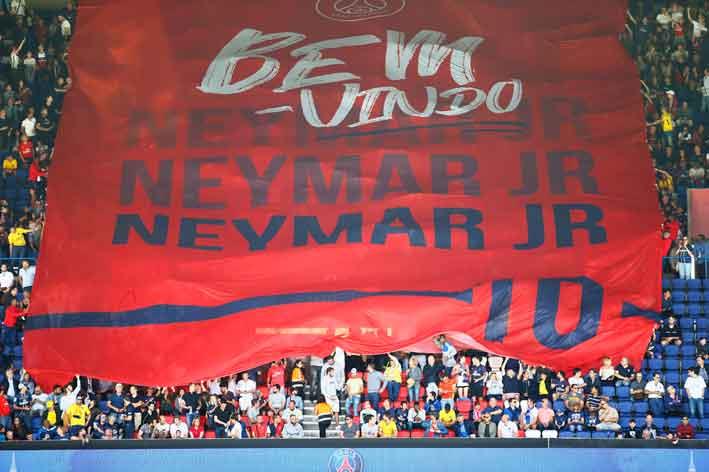
The reason behind the transfer
Why would Neymar want to leave a club that over the past decade has enjoyed extraordinary success to join a club that has never got beyond the quarter final of the Champions League? It is a bold decision.
At PSG, Neymar will be the undisputed number one. It’s easy to see why the idea of being the player who, at last, brings PSG to its first Champions League title might appeal.
That may enhance his chances of winning the Balon d’Or, an individual award that was once a side issue but now seems to dominate the thoughts of gifted players.
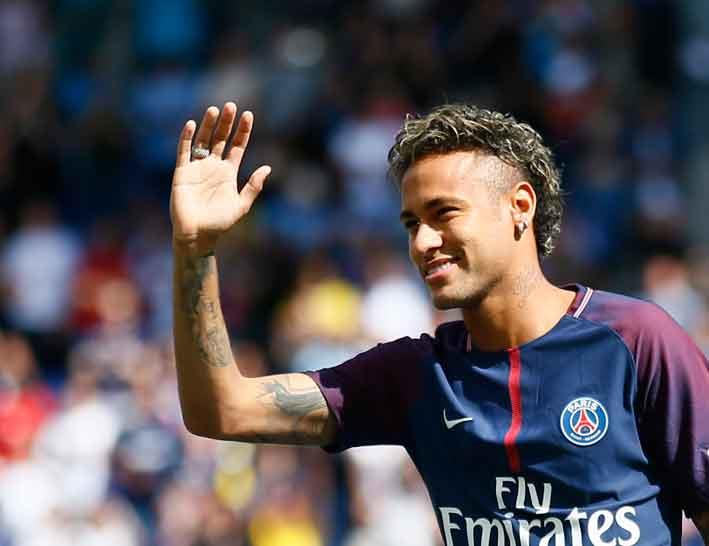
Believe him when he claimed he moved to Paris to join the project. The deal has been financed by Qatar’s riches rather than by PSG’s revenues. The tiny country, the biggest exporter of liquid gas, has seen international sport as critical in raising its profile and it had the money to do so.
Qatar Sports Investments – owned by the state – bought Paris Saint-Germain five years ago as part of the kingdom’s larger strategy to invest in global brands, whether in business, fashion, property or sport.
The strategy was simple – spend heavily to make PSG a European giant to compete with Real Madrid, Barcelona, Bayern Munich and Manchester United. And they are getting there.
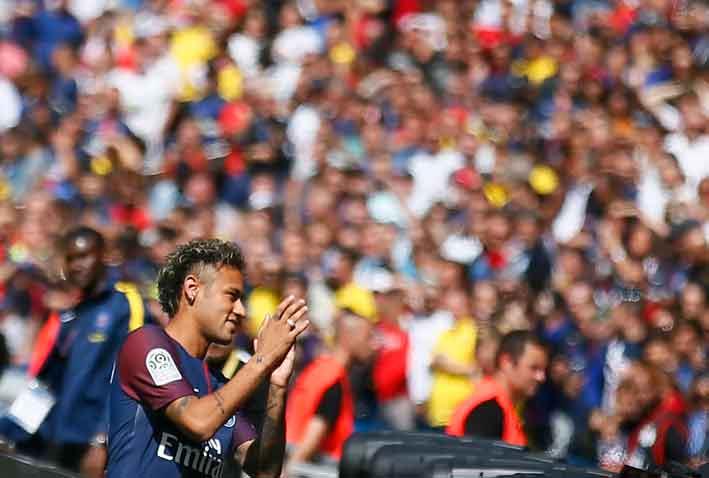
For a start, owning Neymar is a status symbol, like a Picasso painting a rich man hangs on his wall.
Neymar is, in part, a gift from Qatar to France. The two countries have long been friends. And, as reported in the French sports newspapaer ‘L’Eqiupe’, for the first time since Michel Platini left Saint-Etienne for Juventus in 1982, the French league has one of the world’s three best players.
From the financial perspective, Neymar is undoubtedly set to benefit. His reported net salary of €30 million a year – the highest in the game – is double what he used to earn. Like most Brazilian players, he has to provide not only for himself and his extended family but also for old friends and acquaintances, as well as for his institution which helps poor young people in his old neighbourhood in Santos.

Whatever you think of Neymar, his move does not seem like something motivated chiefly by greed or manipulation. This is a superstar wanting to really challenge himself, rather than continue in a supporting role.
As well as more money, PSG offered him something that Barcelona could not – the status of being the number one in the world.
Although Neymar enjoyed great success at Barcelona, he would never have been top while Messi is at the club.
It’s no coincidence that Neymar’s best spells at Barcelona came when Messi was out injured. Messi’s absence allowed Neymar to play in a more central role, as he does for Brazil. At PSG Neymar will own that starring role. He can take the penalties and free kicks for example.
Maybe the late Johan Cruyff was right after all. The Dutch master was sceptical when Neymar joined Barcelona in 2013, stating that you cannot put two captains on the same ship. Neymar’s time has finally come to pilot his own ship.
There’s a third benefit that Neymar can probably get only in Paris – the feeling of playing for a Brazilian club while earning superstar wages. The club can already offer him a Brazilian enclave. Maxwell, Neymar’s former international teammate is PSG’s new assistant sporting director. The Brazilian contingent in the changing room includes Marquinhos, Thiago Silva, Thiago Motta, Lucas Moura and his ‘big brother’ Dani Alves, whose signing by PSG recently was no coincidence.
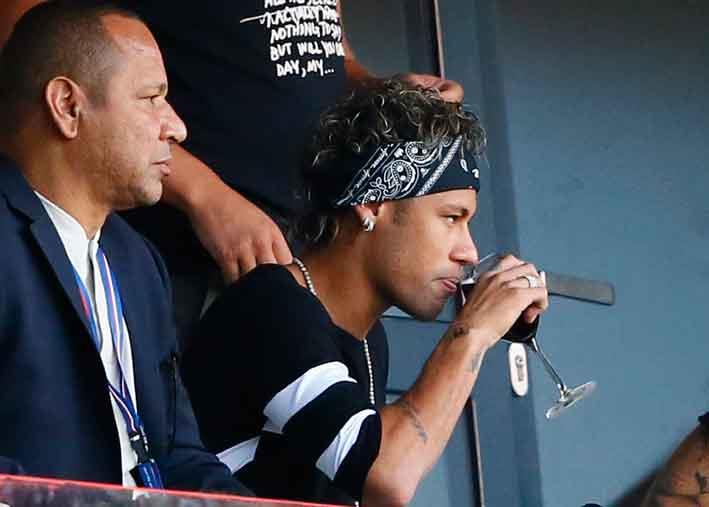
Marketing plays a huge part in this transfer
This transfer is not just historic on a sporting or economic level, but also on a marketing level.
In the three largest social networks, Neymar has a total of 170 million friends or followers – and these are the fans who PSG want to attract.
Neymar’s Facebook page alone has 60 million likes, more than double of PSG. Sixteen million of these fans are from Brazil. Other two million fans come from India and Indonesia, all of which are markets that PSG would like to exploit. Since the departure of Zlatan Ibrahimovic, PSG haven’t had a more marque player to help promote the club all over the world. Now Neymar has taken up this role.
It’s a bumper deal for PSG. Neymar has an enviable personal brand and the French club will reap untold brand recognition and all that entails financially from the transfer coup.
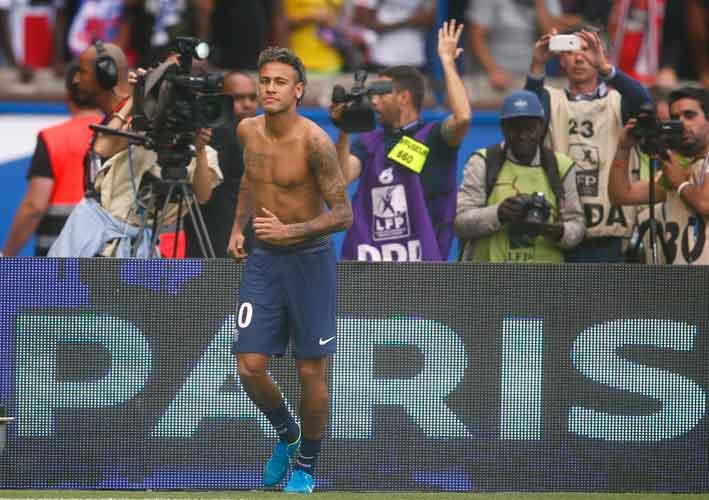
The eyes of the football world are now on PSG. Paris now has the genuine star appeal, which could be doubled if Neymar helps Brazil win next year’s World Cup.
Economists have been telling us for years how players’ wages relate directly to their respective clubs’ league positions. It explains how Manchester City and Chelsea have established themselves at the top of English football after half a century of mid-table obscurity. The Champions League has become winnable for PSG, who have the backing of Qatar and its oil billions.
And Neymar’s popularity could well make it easier for PSG to negotiate new, more lucrative deals with their kit makers Nike and main sponsors, The Emirates.
Ligue 1 also expects Neymar to help promote its brand. Ligue 1’s national contract, currently worth €70 million annually, is up for renegotiation, presumably at a much higher rate. The aim is to first use Neymar to build a much bigger global fan base for PSG and Ligue 1, and then perhaps for other French teams as well.
The move is not without risk though. PSG, in terms of exposure and prestige, aren’t in the same hemisphere as Barcelona, especially if they underachieve. What if Neymar gets injured? What if PSG do not win the Champions League during his stay in Paris? There’s the danger PSG could soon become completely dominant in Ligue 1, making for a boring league, now that defending champions Monaco have sold key players this summer.

Some draw a parallel with the 2012 signing of Ibrahimovic who helped deliver four straight league titles and quarter final finishes in the Champions League. But you would imagine Neymar would need to do better for his signing to be defined as a success. That will depend as much on those around him as it does on Neymar himself. At 25 years of age, how much better can he realistically get?
The deal speaks volumes about the almost insane sums of money being thrown at players and clubs in Europe as the continent’s transfer market goes into hyper-drive. The influx of cash into European football over the past few years has been driven by the Russian and US billionaires, the Gulf state and, more recently, by China as well as by the enormous revenues earned by the top clubs through sponsorships and television rights.
Some fear about the ‘football bubble’ bursting but you don’t need to be an economist to know that it’s alright to spend more if you are earning more money. The vast majority of Europe’s richest clubs – the ones who spend big on transfer fees – have seen comparable rises and most of them are profitable. What’s more, markets have their own way of correcting themselves. Contracts expire and players can be sold. This is neither the end nor the beginning of the end.
At a time small clubs, in terms of prestige and history, are becoming giants economically, this deal is redefining the parameters of the modern transfer.